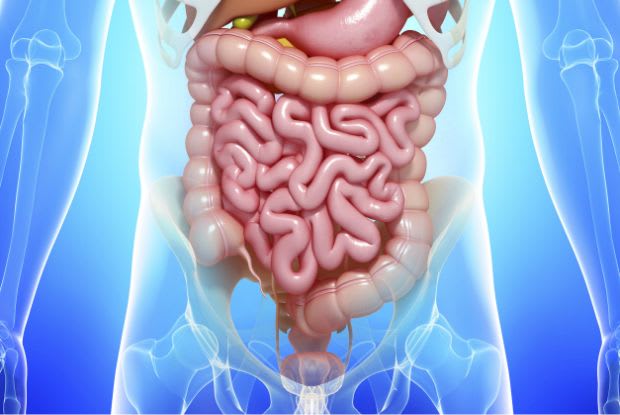Table of Contents
Constipation is a common condition that affects people of all ages. While occasional constipation can often be relieved by drinking more water and eating more fiber, some individuals suffer from chronic constipation that is difficult to manage.
For those with chronic idiopathic constipation or constipation caused by irritable bowel syndrome (IBS), the prescription medication Linzess (linaclotide) may provide relief.
In this article, we’ll explore how Linzess works, proper dosing, and potential side effects.
What is Linzess?
Linzess is an oral medication approved by the FDA in 2012 to help relieve constipation and improve bowel movements. [1] It is used to treat:
- Irritable bowel syndrome with constipation (IBS-C) in adults: IBS-C is a condition characterized by abdominal pain, bloating, gas, and difficulty with bowel movements. [1] [2]
- Chronic idiopathic constipation in adults: The term “idiopathic” means the cause of the constipation is unknown. [1] [3]
- Functional constipation in children above six years of age: the term “functional constipation” refers to difficult, infrequent, or painful bowel movements or the passage of hard stools. It is not caused by any anatomical and systemic issues. [1] [4]
Constipation occurs when you have infrequent bowel movements and struggle to pass hard stools. It can make you feel bloated, full, and distressed. Severe constipation may lead to hemorrhoids, anal fissures, or fecal impaction. [5] Constipation is sometimes caused by irritable bowel syndrome (IBS), a chronic condition with symptoms of bloating, abdominal pain, and other issues. [2]
Linzess helps relieve constipation in several ways:
- It softens and loosens stool, so it's easier to pass.
- It speeds up the time it takes for food to move through your intestines.
- It reduces pain and discomfort caused by constipation. [3]
Many people find Linzess starts working within the first week. Over the next 4 to 12 weeks, you may notice improvements such as: [3]
- Less frequent constipation
- Softer stools
- Less straining
- Less abdominal discomfort
- Less bloating [3]
It’s important to note that if you stop taking Linzess, constipation symptoms can return in one week. [3]
How Does Linzess Work?
Linzess works by targeting the gut to relieve constipation. Its active ingredient, linaclotide, is classified as a guanylate cyclase-C (GC-C) agonist. This means it activates GC-C receptors found in the lining of the intestines. [1] When you ingest Linzess, it travels to the bowels, where linaclotide is released. Linaclotide then binds to GC-C receptors and turns them on. Activating these receptors triggers the release of ions like chloride and bicarbonate from intestinal cells. The ions attract water, softening stool and promoting bowel movements. [1] In addition, linaclotide helps reduce pain in the intestines by calming nerves that sense pain in the gut lining. [1] Linzess capsules come in three strengths: The specific Linzess dosage you’re prescribed will depend on the condition being treated: Taking Linzess as prescribed is important for getting the most benefit from this medication. Your doctor will provide you with specific instructions for how much and when to take it. It's essential to follow these guidelines closely. Here are some tips for taking Linzess properly: Linzess works directly in the gastrointestinal tract, so most side effects are related to the stomach and intestines. The most common side effect is diarrhea, which often starts within the first two weeks of use. Tell your doctor right away if you have severe diarrhea. [1] Other potential side effects include: In rare cases, Linzess can lead to more serious side effects, such as: If you experience any of these symptoms, let your doctor know immediately. Linzess can be an important tool for managing chronic constipation. By understanding how it works, proper administration, and potential side effects, Linzess can be used safely and effectively as part of a comprehensive treatment plan. To learn more about Linzess, visit our dedicated Linzess blog. The content in this article is intended for informational purposes only. This website does not provide medical advice. In all circumstances, you should always seek the advice of your physician and/or other qualified health professionals(s) for drug, medical condition, or treatment advice. The content provided on this website is not a substitute for professional medical advice, diagnosis, or treatment.
Linzess Dosages
How to Take Linzess
Linzess Side Effects

Conclusion
